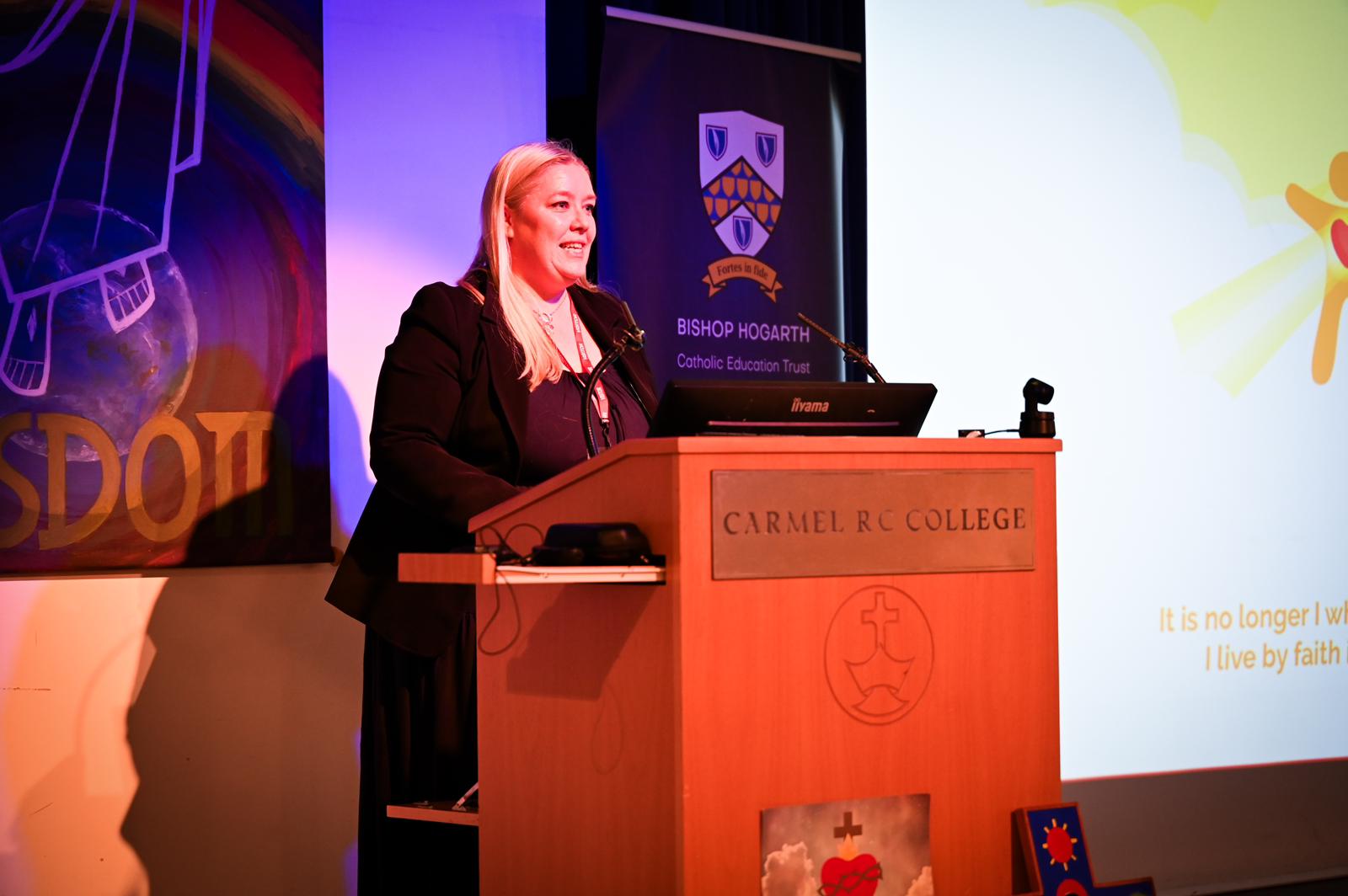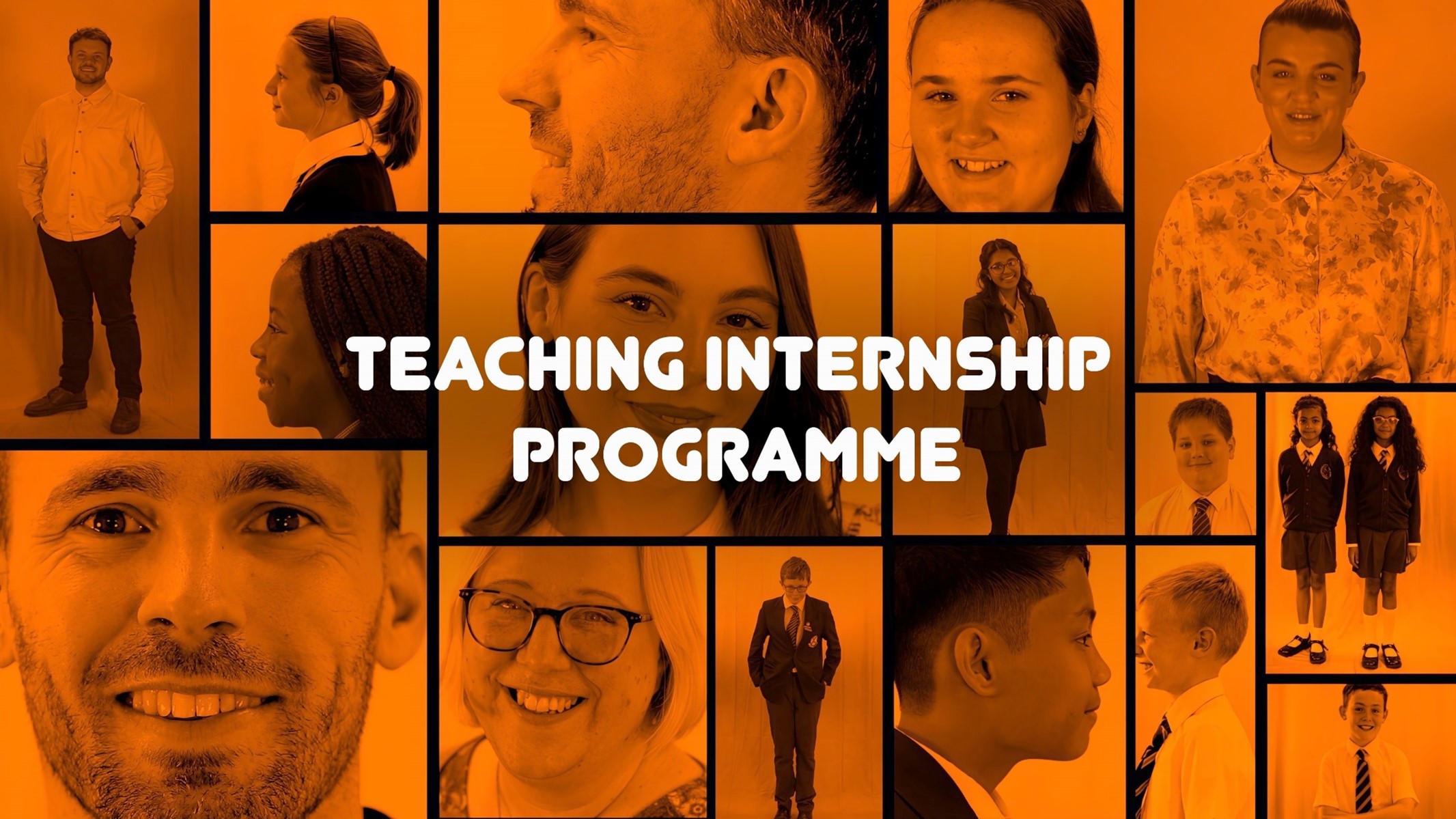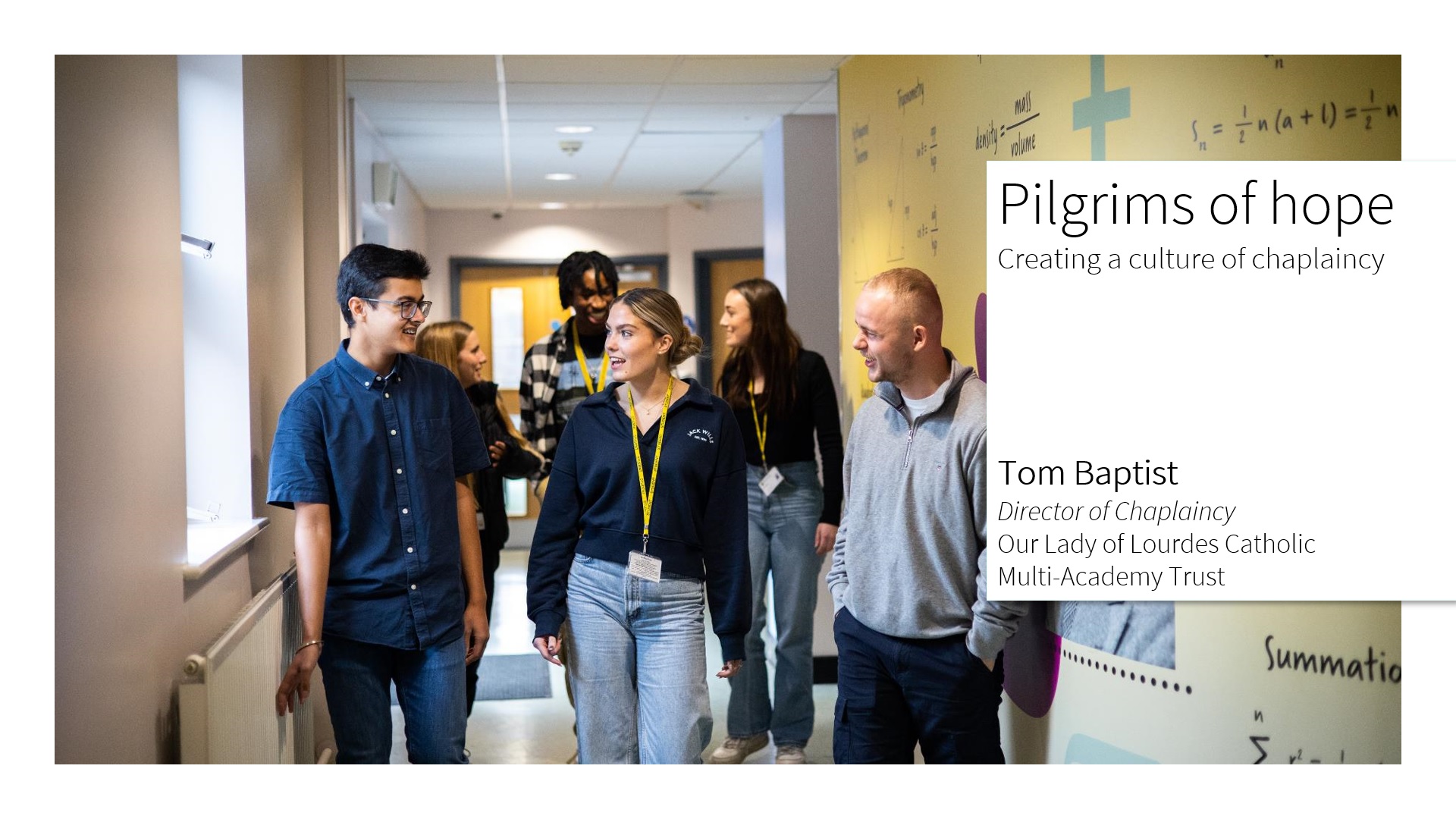£1 bus fares and a Home Office U-turn: schools celebrate Catholic Social Teaching campaign success
 More than 150 students and teachers of Catholic schools from across the country gathered to hear how Catholic Social Teaching has been put into practice in education.
More than 150 students and teachers of Catholic schools from across the country gathered to hear how Catholic Social Teaching has been put into practice in education.
The 2 July event took place at the Church of the Holy Apostles Parish Hall, Pimlico, and also saw the launch of a community organising handbook, published by charity Citizens UK and featuring the schools’ work.
Welcoming speeches were made by the His Eminence Cardinal Vincent Nichols, Archbishop of Westminster; Raymond Friel, Chief Executive of Caritas Social Action Network; and Anita Motha, Chief Executive of Catholic youth charity Million Minutes.
Students at Cardinal Newman Catholic School, Hove, in the Catholic Diocese of Arundel and Brighton, explained how they successfully campaigned against a Coptic Christian pupil being deported to South Sudan. After their efforts appeared in a local newspaper and television news bulletins, lawyers offered support and the Home Office reversed its decision.
The students also secured a pilot project of school-based mental health counselling for Year 9s across Brighton and Hove, after approaching the local council.
Gráinne Byrd, Director of Faith and Ethos at Cardinal Newman, said: “A recurring motif in Cardinal Newman Catholic School’s involvement with Citizens UK is the repeated call to be ‘light in the darkness’. Working together collaboratively, we have challenged decision makers to be that light.”
St Thomas More Catholic High School students, in North Shields, Hexham and Newcastle Diocese, discovered that Arriva buses, unlike other bus companies in areas nearby, were charging them adult fares.
They participated in transport consultations, also persuading the then-Mayor of the North of Tyne Combined Authority to support the campaign. They dressed in their parents’ work clothes, sang songs and marched peacefully, meeting with Arriva, and ultimately a £1 fare was announced for all under-22s in the region.
Wimbledon College, in the Archdiocese of Southwark, identified mental health as an important issue that emerged during Merton Citizens assembly meetings with schools and churches. They organised a mental health summit with local decision-makers, eventually securing more NHS youth mental health funding in their area, trained mental health ambassadors, and ‘be well hubs’ across south London.
St Bonaventure’s Catholic Secondary School, Forest Gate, in the Diocese of Brentwood, had long been served by inadequately-timed and overcrowded bus services. A group of Year 8 students hosted a meeting for bus companies and Transport for London (TfL) representatives, and timetables were swiftly improved.
After some of their peers had been fined, students also raised the issue of training for drivers and a bus company regarding regulations around travel with lost or damaged travel cards, with positive results.
At St Antony’s Catholic Primary School, also in Forest Gate and the Diocese of Brentwood, pupils decided to campaign on the issue of low pay. They wrote a song, and performed it in front of management from London City Airport, a major employer in the area, persuading them to become an accredited Living Wage employer.The school was then able to successfully influence other big local employers to do likewise, such as Tate and Lyle Sugars, Newham Council, and ExCeL London.
St Clare’s Catholic Primary School, Handsworth, in the Archdiocese of Birmingham, worked together with across the city to develop a five-step plan to help tackle discrimination and appreciate each other’s differences. They are now working on a video to share their work with others and to support Year 6 and Year 7 transition.
Cardinal Nichols said: “This work, from my point of view, really does have to spring from our faith.
"Human dignity does not depend on any human authority, it is innate, it comes first because each person is made in the image and likeness of God.”
Catholic Social Teaching is based on the encyclicals of current and former Popes, and principles such as solidarity and subsidiarity, to provide a framework for contemporary practical application.
Download Called To Action: Catholic Social Teaching and Community Organising in Schools and Colleges
Formatio: interview with founder trustee Mike Shorten
 The Formatio partnership supports dioceses, Catholic universities, Catholic Multi Academy Trusts (CMATs) and the CES in implementing strategies for Catholic school leadership and governance, as commissioned by the Bishops in 2017.
The Formatio partnership supports dioceses, Catholic universities, Catholic Multi Academy Trusts (CMATs) and the CES in implementing strategies for Catholic school leadership and governance, as commissioned by the Bishops in 2017.
Its strategic priorities are teacher recruitment, particularly in Religious Education, as well as developing Catholic leadership and the training of multi-academy trust (MAT) staff. Formatio is made up of four regional hubs comprising the dioceses, CMATs and the four Catholic universities.
Mike Shorten (pictured) is Chief Executive Officer of Bishop Hogarth Catholic Education Trust, which oversees 35 schools in the Diocese of Hexham and Newcastle. He is a founding member of Formatio, joining as a trustee when it was first established.
At the time he was headteacher of Carmel College, in Darlington, where in 1999 he set up the Carmel Teacher Training Partnership (CTTP), an Initial Teacher Training provider which has worked with Leeds Trinity and St Mary’s universities for PGCE provision.
‘Growing our own’
He said: “We felt we couldn't keep on complaining about how there weren't enough teachers unless we did something about it, we needed to grow our own.”
Keeping in touch with sixth form students through their degree is important, Mike said, as well as giving them jobs and internships in between university semesters.
“So rather than stacking shelves at Tesco's they could be coming in and working with Key Stage 3 children and getting a real taste of it, but this needs to be funded,” he said.
“The RE teachers of the next five years are currently in Catholic schools, everyone knows they're not coming from anywhere else, so they're a captive audience.
“As a sector we should be systematically promoting the role of being an RE teacher in the subject, and thinking about what that looks like with careers programs for 13- and 14-year-olds, A level and GCSE RE students.
“We also need to make it more appealing for them to think of teaching as a career either immediately after a degree or maybe later in life as a career changer. There's got to be a different view of teaching always being for people as a vocation for life, in the current climate it's very unusual for people to have a single career throughout their life.”
Developing new leadership
Through Formatio Mike also set up the National Catholic Leadership Programme. This initiative, for the formation and recruitment of headteachers, was piloted by the Diocese of Hexham and Newcastle and has since been rolled out to others.
Bishop Hogarth offers staff development opportunities to move around within its network of schools, for instance by offering secondments to senior leaders for a month, term or year, and with in-house leadership training that includes Catholic Social Teaching, ethics and character development.
Mike explained how one of the benefits of being in a trust was the support of new headteachers. New headteachers are supported through the Ofsted process by experienced staff, in person while the inspection team is at the school — reducing the barriers to leadership and encouraging deputies to become headteachers.
Non-Catholic CMAT staff in senior non-reserved posts such as in HR, IT or finance, are also trained in running a large organisation from a Catholic perspective.
Opportunities for students and staff
The CMAT system offers opportunities beyond what can be provided by a standalone school buying in local authority support, Mike said. He gave the example of Bishop Hogarth schools’ debating societies, where students don’t just compete with their classmates, but against other schools across the CMAT.
“There's nothing better than developing that strength of character, that confidence and resilience to be able to argue your point with somebody, it can be life-changing.
“And we can do that with sport, music, and for pupil premium children, opportunities they wouldn't have had otherwise.”
Similarly, he is also passionate about the continuity of curriculum possible in a CMAT system. He said different primary schools teaching languages like French, Spanish or German would ultimately feed into a secondary where pupils then start from scratch with a new curriculum.
“You start with four-year-olds and teach the same language curriculum right through to age 11, they join secondary school and it just carries on.
“Having continuity of curriculum, for geography, history, for science and maths, where it flows through, that’s just common sense, with potentially stunning outcomes.”
A bright future
It’s not just through Formatio that Mike has made connections with Catholic universities, but also around the world.
Ten undergraduates from a Catholic university in Australia have recently been teaching in Bishop Hogarth schools as part of a work placement scheme.
He said: “In future some of them can say ‘you know what, we want to come back and teach in your schools’, all of them are Catholic, and suddenly we've got a new pipeline. Some of them want to be RE teachers , therefore coming through and feeding into our system.”
Ultimately, with nearly half of Catholic schools now academies, Mike sees the CMAT system as a permanent fixture in the education sector, and one having a future bright with potential.
“There are exciting times to come, I am confident it will protect Catholic education, where will it lead us? That depends on if we are brave enough to take the chances when the opportunities arise.”
Jubilee Year 2025: Pilgrims of Hope - a letter from the CES Chairman, the Rt. Rev. Marcus Stock


UK's first Catholic mission strategy produced for Leeds Trinity University
 A consultation with Leeds Trinity University staff and students has led to the UK’s first Catholic mission strategy being produced.
A consultation with Leeds Trinity University staff and students has led to the UK’s first Catholic mission strategy being produced.
This has been welcomed by staff, students and governors at Leeds Trinity, which is one of four Catholic universities in England.
Consultation and open psychologically safe listening revealed that some staff and students did not fully understand the Catholic nature of the university and how it can be expressed in a competitive higher education marketplace.
The inspiring story of the Sisters of the Cross and Passion and CES, who opened the university in 1966 to widen access to education and skills for marginalised groups in society, was the catalyst for a renewed understanding of why the Catholic mission of the university can and should continue to be articulated.
The story of The Most Venerable Elizabeth Prout also inspired the Leeds Trinity community to see themselves in the story of the foundress of the Sisters of the Cross and Passion order — and as part of the continuation of her mission to provide education for all.
Dr Ann Marie Mealey (pictured), the university’s Director of Catholic Mission, said: “The founding vision of transformation of lives through education informed by faith still resonates on campus today, including with non-Catholics. We always need to find new ways of aligning our Catholic mission with sector demands because Catholic education has always made a significant contribution to ‘teaching from the margins of society’ with faith and love. And this is still credible in today’s world.
“I am so proud of the Leeds Trinity staff and student community. They found our foundational story and raison d’être so inspiring once it was explained to everyone that each and every person is a part of a mission to offer education as hope for a better future for everyone. Our motto of education for hope is used positively by many staff and students and is a sign of renewed engagement with who we always were since 1966.”
The university reaffirmed its mission inspired by the guidance of the Sisters of the Cross and Passion as follows:
- learn respect for self and others
- learn the meaning of an inclusive community which celebrates difference and acknowledges mutual interdependence
- develop a love of learning and appreciation of their talents
- read the signs of the times and respond to the crying needs of the world today
- share their gifts and resources in a spirit of compassion for the building of a more just world
The strategy includes an emphasis on providing skills outside of the classroom to students in ethical leadership programmes and workshops, inspired by the principles of Catholic Social Teaching. It also capitalises on the global network of Catholic higher education, of which England’s four Catholic universities are a part.
The strategic pillars of the new strategy align with Leeds Trinity’s strategic plan and demonstrate how each and every person is invited to develop their full potential. This is achieved through sustainable education; ethically informed student experience; support for Catholic multi-academy trusts; research and knowledge exchange; as well as in international and national collaborations with sister Catholic schools, colleges and universities that make up the Catholic family of education providers.
Leeds Trinity’s recent Catholic mission work has branched out into areas including Beyond The Dark Clouds, a free online lecture series and internationally-known podcast on Catholic approaches to topical issues; an annual conference on Catholic education; designing an ethical leadership programme in association with CAFOD; and hosting a mosaic of Biblical scenes by an award-winning artist at the university’s chapel.
Part of the mosaic depicted Alan Kurdi, the two-year-old boy washed up on a beach in Turkey while crossing the Mediterranean from Syria. Dr Mealey said that non-Catholic staff and students visiting the exhibition were impressed to hear of the Bishops’ approach to migration, as articulated in Love The Stranger.
She said: “Some staff and students said they didn’t know that the Bishops engaged with the ethical challenges of our times. But being guided to learn more about the intellectual side of the Church helped those who are not Catholic to come forward and speak about our university’s Catholicism in a positive light and to understand more fully that the social teachings of the Church invite everyone to consider what is deeply human about education and human living.
“I’m so grateful to everyone for their contributions and engagement in this process and hope that our work inspires other universities to design their own strategies for hope.”
Find out more about Leeds Trinity University’s Catholic mission
Formatio Teaching Internship Programme: grow your own trainee teachers
 The Formatio partnership supports the Catholic Education Service and diocesan schools commissions in implementing strategies for school leadership and governance, as commissioned by the Bishops in 2017.
The Formatio partnership supports the Catholic Education Service and diocesan schools commissions in implementing strategies for school leadership and governance, as commissioned by the Bishops in 2017.
Its strategic priorities are teacher recruitment, particularly in Religious Education, as well as developing Catholic leadership and the training of multi-academy trust (MAT) staff.
Formatio is made up of four regional hubs comprising partnerships of the dioceses, MATs and the four Catholic universities.
Formatio's South West Regional Hub has identified the need to recruit excellent candidates into Catholic schools both to ensure exceptional Catholic education for children and to grow a rich source of future Catholic leaders.
This led to encouraging and enthusing current students to explore teaching as a career and consider the benefits of working in Catholic schools. The Teaching Internship Programme provides two main resources.
The first is the Be the Difference video, which you can stream to watch at the bottom of this page. It captures the experience of students and staff in three Catholic schools from across the Southwest Partnership.
Pupils from year 3 to year 11 explain what makes their school special and teachers from all phases speak passionately about their experience of teaching in Catholic schools. This includes a four-minute taster version of short soundbites, and a 13-minute version of more in-depth interviews. Both are included in the Year 12 programme but could be used independently for Catholic teacher recruitment purposes.
The second resource is a sample strategy with written resources for schools and colleges to follow together with supporting materials. This resource has been produced in text with few photographs and without any branding, to enable staff to download and add their school’s own templates, stories, images and local context.
These two resources are intended to encourage more candidates into the teaching profession and raise awareness of the benefits of working in the Catholic sector. The target audiences for the video resources range from sixth form students, undergraduates, current teachers in other schools or not currently teaching and parishioners interested in a career in teaching. The written resources are linked to the sample strategy that begins with Year 12 students, although they could be adapted for use with any of those target audiences.
The resources can be downloaded below.
Southwark Archdiocese: award-winning authors at Kent Catholic Schools’ Partnership Primary Children’s Conference
 On Wednesday 5 June, after an entire year of planning and preparation, Kent Catholic Schools’ Partnership (KCSP) held our first ever children’s conference for 793 Year 5 pupils and we are so proud to say that it was one of our biggest and most successful events to date!
On Wednesday 5 June, after an entire year of planning and preparation, Kent Catholic Schools’ Partnership (KCSP) held our first ever children’s conference for 793 Year 5 pupils and we are so proud to say that it was one of our biggest and most successful events to date!
Working with Ellie and Zoe at Speaking of Books, who specialise in bringing together children with leading writers, illustrators and storytellers, we were lucky enough to have some incredibly special guests join us: author and former Children’s Laureate Michael Rosen, spoken word poet (and expert digeridoo player!) Zohab Zee Khan, bestselling and award-winning Kent-based author Lucy Strange, and award-winning illustrator Chanté Timothy.
Our guests ran a series of fun and engaging workshops for our pupils, inspiring them, teaching them some new brilliant skills and ways of writing, telling stories, and how to express themselves through spoken and written word.
Our grateful thanks go to our host schools, St John’s Catholic Primary School, and St John’s Catholic Comprehensive School, in Gravesend; they were warm and welcoming, cheerfully accommodating two giant marquees, four very special guests, 18 coaches, 118 staff, and, not to mention, 793 pupils!
Our pupils had a wonderful day that we know they will remember for a very, very long time to come, and we cannot wait to hold our next conference, so please watch this space!
Charlotte Robinson
Executive Director of Governance and Company Secretary
Kent Catholic Schools' Partnership

Pilgrims of hope - creating a culture of chaplaincy
 Many of the 2,169 Catholic schools, colleges and academies in England and Wales employ chaplains to address the social, emotional and spiritual needs of students and staff.
Many of the 2,169 Catholic schools, colleges and academies in England and Wales employ chaplains to address the social, emotional and spiritual needs of students and staff.
However, a lack of career progression and limited pay can result in low numbers of applicants for school chaplaincy vacancies, with chaplains stretched between multiple sites, and who then move on to jobs with better prospects.
Tom Baptist is Director of Chaplaincy at Our Lady of Lourdes Catholic Multi-Academy Trust. In collaboration with the Diocese of Nottingham Education Service, he has highlighted and addressed this issue by establishing a career pathway from apprentice level up to a regional chaplaincy director.
Within this innovative structure a lay chaplain support staff post has been created to avoid teaching assistants taking on pastoral duties beyond their role.
This new post provides formal recognition for their work, an improved salary, and potential career progression into school chaplaincy.
The school chaplains are supported by the education structure in Nottingham Diocese, with all 84 of its state-funded Catholic schools within three multi-academy trusts (MATs).
Consistent pay and conditions are ensured by the diocesan Human Resources Director who oversees all three MATs.
Further detail is available within the presentation downloadable below, which has been kindly provided by Tom.
Election 2024 - education
But as for you, continue in what you have learned and have firmly believed, knowing from whom you learned it and how from childhood you have been acquainted with the sacred writings, which are able to make you wise for salvation through faith in Christ Jesus.
2 Timothy 3:14-15
Keep hold of instruction; do not let go; guard her, for she is your life.
Proverbs 4:13
The political community has a duty to honour the family, to assist it, and to ensure especially: … the freedom to profess one’s faith, to hand it on, and raise one’s children in it, with the necessary means and institutions…
The Catechism of the Catholic Church, 2211
Background
As a religious community we value our partnership with successive governments in England and Wales in the provision of Catholic education. Its fruit is the more than 2,100 nurseries, schools, special schools, independent schools, colleges, and universities which make the Catholic Church the second-largest provider of education in the country, and with the biggest network of academies.
Catholic schools exist to support parents as the primary educators of their children and welcome anyone who seeks a Catholic education for their child. Rapidly expanded in the 19th century to meet the needs of the growing urban population, today Catholic schools make up 9% of the state-funded sector and are considerably more ethnically diverse than the national average. They take in more pupils from the poorest households and outperform state schools by up to seven percentage points at GCSE English, Mathematics and Religious Education.
The Catholic community provides a significant financial contribution to the government in rent-free provision of land and buildings for schools, and by contributing to capital costs saves taxpayers hundreds of millions of pounds.
This 177 years of partnership with the State has resulted in a legal foundation which protects the core principles of Catholic education. Amongst these are the ability to give priority in admissions to Catholic children; the right of bishops to appoint a majority of school governors; the right to reserve senior leadership posts for Catholics; and the legal right to teach, inspect and set the curriculum for Religious Education in Catholic schools.
Catholic education is popular with parents and successful in preparing pupils for life in modern Britain. However, there are campaigns to get rid of schools with a religious character, and to change the curriculum so that our schools would no longer be Catholic.
Action
The sector is successful because of the hundreds of thousands of teachers, leaders, parents and volunteers but it still requires a Government to safeguard a Catholic approach:
- The Government should support Catholic schools through policy and legislation which protects the legal foundations of this historic sector.
- The Government should work closely with the Catholic sector to use best practice and ensure that the existing Catholic approach to governance, admissions, inspections, and the curriculum continues to flourish.
- Whilst acknowledging the essential work of educational practitioners, the Government should recognise that parents are the first and primary educators of their children and ensure that this right permeates through all education policy.
What are your candidate’s views?
You may want to consider these questions when speaking to candidates seeking election.
- Do they support the creation of new Catholic schools, including new Catholic Special Schools, through the removal of the cap on faith-based admissions?
- Will they protect current admissions arrangements in Catholic schools?
- Do they recognise the importance of Catholic leaders, teachers and governors in maintaining the Catholic school ethos?
- What support will they give to raising the importance of Religious Education?
- How will they safeguard parents’ rights as the primary educators including their right to withdraw their child from Relationships and Sex education and Religious Education?
Resources
Christ at the Centre – Why the Church Provides Catholic Schools
Catholic Education in England and Wales
Catholic Schools: Partners in Formation – Celebrating 175 Years of the Catholic Education Service
The Code of Canon Law: Catholic Education
“Catholic parents also have the duty and right of choosing those means and institutions through which they can provide more suitably for the Catholic education of their children, according to local circumstances.”
Code of Canon Law 1983, canon 793 §1
For further information on the election, please visit the Bishops' Conference website.
Eteach revolutionises Catholic school recruitment with CES-approved online application form
 Catholic schools can now benefit from the latest application technology when attracting new staff, boosting their application rates without forgoing any of the data required as best practice.
Catholic schools can now benefit from the latest application technology when attracting new staff, boosting their application rates without forgoing any of the data required as best practice.
The Catholic Education Service (CES) has worked hand-in-hand with Eteach, a leading provider of EdTech software and services, to deliver a new best-practice online application form for Catholic schools that is fully optimised for mobile.
Traditionally, Catholic schools have relied on downloadable forms, coupled with additional documents that must be uploaded separately. Recognising the need for a more efficient solution, Eteach embarked on a mission to simplify and enhance the application experience for both candidates and recruitment teams, while still meeting the unique data capture requirements of Catholic schools. The form has been developed in close collaboration with the CES and marks a significant advancement in streamlining the recruitment process for Catholic institutions.
“The CES has worked with Eteach to ensure that its application forms are suitable for use in Catholic schools,” said Paul Barber, Director of the CES. “We are also delighted that Churchmarketplace has included Eteach in its procurement framework for Catholic schools, to help support teacher and support staff recruitment.”
The partnership recently announced the launch of their groundbreaking new online application form as part of a host of new features Eteach is offering, tailored specifically for Catholic schools.
“We are delighted to introduce the latest product upgrade to our award-winning Applicant Tracking System (ATS) - our CES-approved online application form, specifically designed to meet the unique needs of Catholic schools,” said Paul Howells, Founder and CEO of Eteach.
“The whole initiative ensures a seamless journey for candidates, ultimately fostering a faster, more efficient application process. It’s clear that by using technology effectively, schools will lessen the impact of staff shortages and reduce costs.This is the culmination of many hours of work by the CES and Eteach, defining requirements and developing the system to make school recruitment more efficient, whilst keeping quality and safety at the top of their priorities.”
Key features of the new online application form include:
- Mobile optimisation, catering to the 70% of job seekers who apply via mobile devices.
- Customised fields to capture essential information specific to Catholic school roles, such as religious denomination and qualifications.
- Integration of required supporting documents within the form, eliminating the need for separate uploads.
- Built-in Equal Opportunities Monitoring form to uphold fairness and transparency in recruitment practices.
- Fully translated into Welsh to accommodate schools in Welsh-speaking communities.
Additional features within the Eteach product set are designed to improve the SEO performance of Catholic schools, enhance the candidate journey for applicants looking for roles in any faith-based school and to build a talent pool for Catholic educators UK wide.
Moreover, Eteach has joined forces with Churchmarketplace, a non-profit organisation dedicated to promoting products and services for Catholic institutions. As an official supplier of recruitment software, Eteach will offer the CES-approved online application form as part of their comprehensive annual licence package, available at exclusive rates for Catholic schools, colleges, and trusts.
“We are delighted to be working with Eteach to drive up applications for vacancies in our Catholic schools for teaching and support staff posts nationwide.” Said Jenny Booth, Director of Churchmarketplace.
Over 400 current Eteach partners are benefiting from the new online application form already. For the wider Catholic education community, the form will be accessible as part of an Eteach annual licence.
To learn more about Eteach's advertising and recruitment software for Catholic education, visit Eteach or Churchmarketplace.
Statement on government proposals to remove admissions cap for new academies
The Right Reverend Marcus Stock, Bishop of Leeds and Chairman of the Catholic Education Service (CES), has welcomed the decision by the Education Secretary, Gillian Keegan, to lift the cap on new free schools in England.
The decision paves the way for Catholic free schools to open, having previously been excluded under the 50 percent cap or ‘rule’ which would have forced schools to turn away some Catholic pupils.
Bishop Stock said:“These proposals are welcome. Dioceses are well placed to respond to differing local educational demands around the country, including the provision for children with special educational needs and disabilities. Parents can welcome this also.
“Catholic education not only provides a high performing school sector and promotes the formation of children in values and virtues; it is more ethnically diverse than other schools, educates more pupils from the most deprived backgrounds, and builds social cohesion within our communities.”
The Department for Education also has plans to enable new faith-based academies for pupils with special educational needs and disabilities (SEND). The Catholic Church has a long history of SEND provision, and at present there are seven non-maintained Catholic SEND schools, three other independent Catholic SEND schools, and 16 other Catholic independent schools which are approved for SEND provision.
Find out about the work of St Rose’s, a SEND all-through school in Stroud, Clifton Diocese, and St Vincent’s, a school for visually impaired children in the Archdiocese of Liverpool.
Consultation
The decision is subject to a seven-week public consultation that closes on 20 June – take part in the consultation here.

